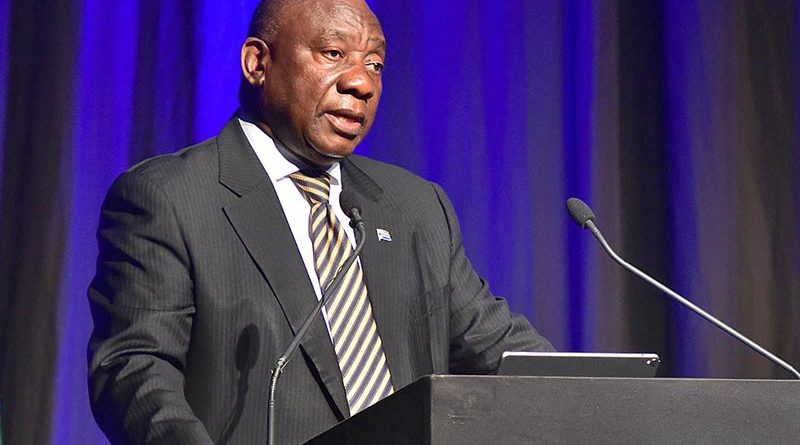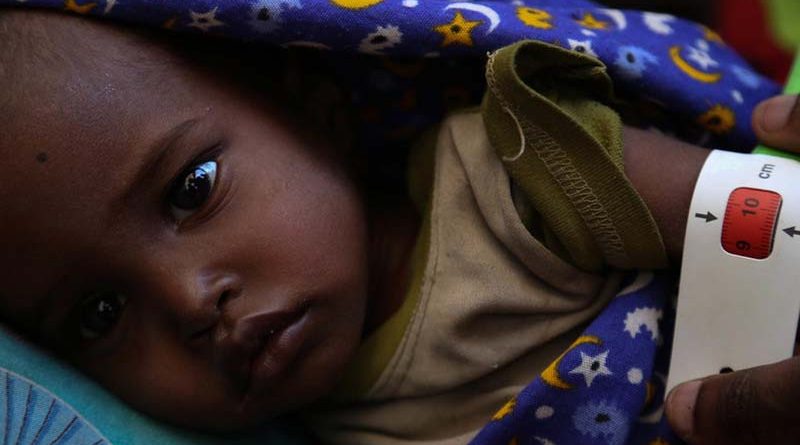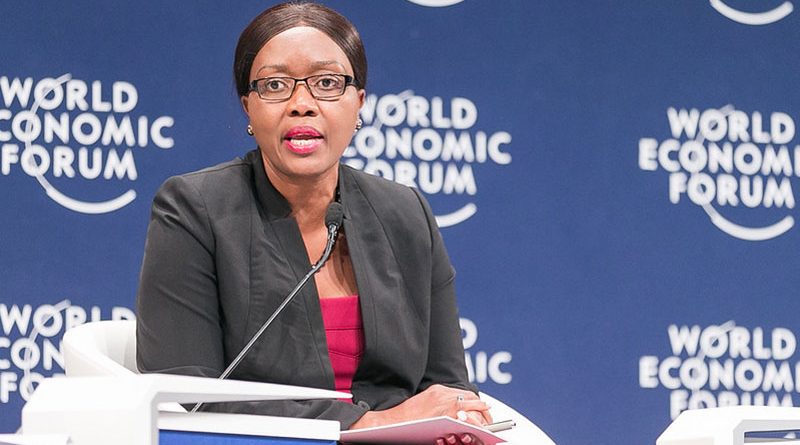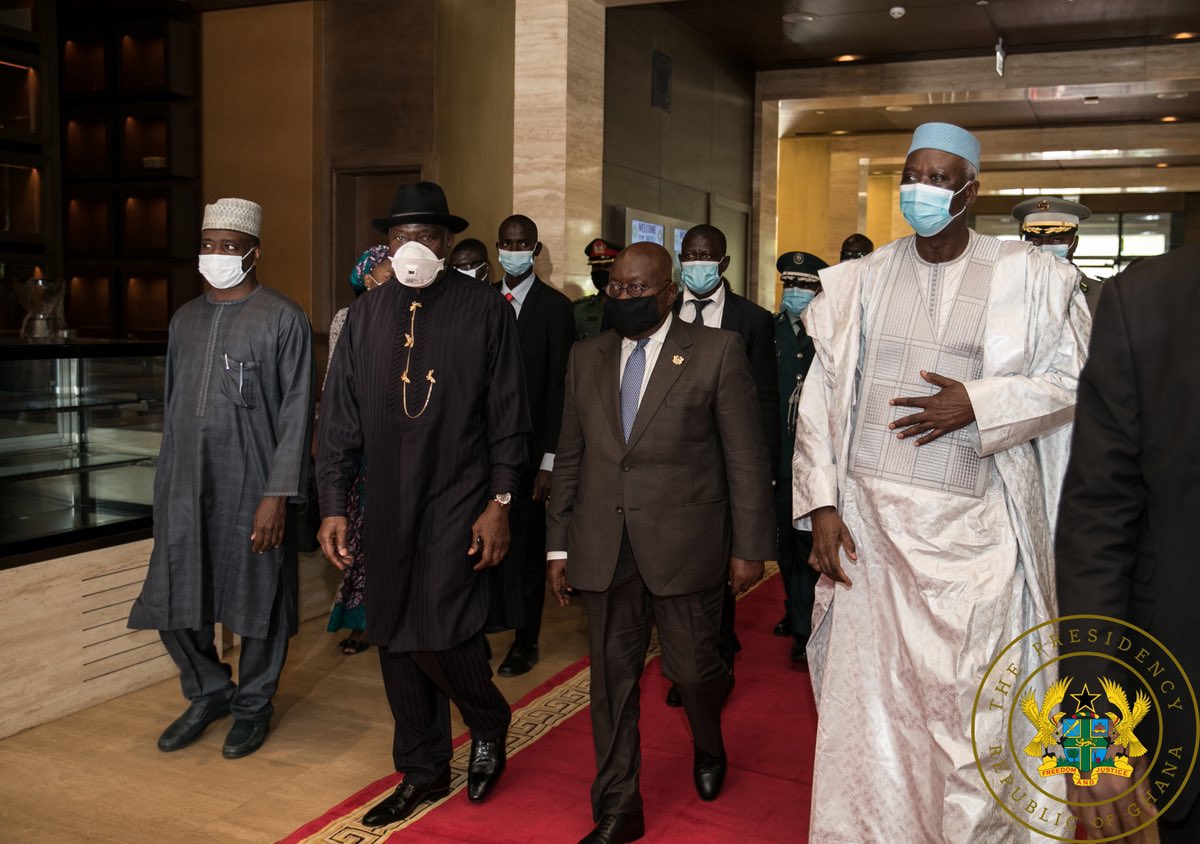SOUTH African president has unveiled a bold multi-trillion rand programme to revive an economy battered by the COVID-19.
In a special address to Parliament, Ramaphosa said to recover from COVID-19, South Africa has to unleash the full potential of its economy by, among others, implementing necessary reforms, removing regulatory barriers that increase costs and create inefficiencies in the economy, securing our energy supply, and freeing up digital infrastructure.
He said the plan directly responds to the immediate economic impact of COVID-19 by driving job creation and expanding support for vulnerable households. This would be done through a major infrastructure programme and a large-scale employment stimulus, coupled with an intensive localisation drive and industrial expansion.
The pillar of the plan are;
– To achieve sufficient, secure and reliable energy supply within two years. A total of 11 800 megawatts of new generation capacity will be added to the grid with an additional 2000 MW from independent power producers.
– To create and support over 800,000 work opportunities in the immediate term to respond to job losses. Among them are 300 000 opportunities for young people to serve as education and school assistants, 60 000 labour intensive jobs and 6000 community health jobs.
– To unlock more than R1 trillion in infrastructure investment over the next four years. A total of 50 projects will be fast-tracked. These include housing projects in Gauteng, the North West, KwaZulu-Natal and the Free State. A further 200 projects are in the pipeline.
– To reduce data costs for every South African and expand broadband access to low-income households.
– To reverse the decline of the local manufacturing sector and promote reindustrialisation through deeper levels of localisation and exports.
– To resuscitate vulnerable sectors such as tourism, which have been hard hit by the pandemic.
The South African president said modelling done by the national treasury, the implementation of this plan will raise growth to around 3% on average over the next 10 years.
“Our recovery will be propelled by swift reforms to unleash the potential of the economy, and supported by an efficient state that is committed to clean governance. It will be transformative.
It will be inclusive. It will be digital, green and sustainable, and it will invest in our human capital to lay the foundations for the future. The economic reconstruction and recovery plan recognises that to support a rapid economic rebound, South Africa needs to focus on a few high-impact interventions and ensure they are executed swiftly and effectively,” Ramaphosa said.
He said to create jobs in the manufacturing sector, South African needs to reduce its dependence on imports. He added that South Africa currently imports around R1.1 trillion of goods, excluding oil, each year.
‘If we were to manufacture just 10% of these goods locally, it is estimated that we could add 2 percentage points to our annual GDP. The rest of Africa currently imports R2.9 trillion worth of manufactured goods from outside the continent each year. If South Africa were to supply just 2% of those goods, it would add 1.2 percentage points to our annual GDP. And if we succeed in reaching our target of R1.2 trillion in new investment by 2023, it could add around 2.5% to our annual GDP,” Ramaphosa said.
Source: The African Mirror
AN extra 10,000 children per month may die this year from malnutrition due to the COVID-19 crisis, the head of the World Health Organisation has warned.
Tedros Adhanom Ghebreyesus told a U.N Food and Agriculture (FAO) conference that due to the pandemic he expected a 14% rise in cases of severe child malnutrition this year – or 6.7 million more people – mostly in sub-Saharan Africa and South Asia.
“We cannot accept a world where the rich have access to healthy diets while the poor are left behind… the rich can afford to stay home, the poor must go out to work,” he said.
After the economic devastation of the pandemic, governments must work with the private sector and civil society to support sustainable food systems and end subsidies for producers of unhealthy foods, the WHO director-general added.
Millions of lives could be saved if countries expanded childhood feeding programmes, reduced marketing of unhealthy foods and used fiscal policies to drive better food choices amongst consumers, he said.
“COVID has reminded us that life is fragile, health is precious, and healthy diets are not just for the wealthy, they’re a human right,” he said.
“The pandemic has caused serious disruptions to essential services, immunisation, maternal services, child nutrition, family planning and more.” – Thomson Reuters Foundation.
Source: The African Mirror
STREET protests that led to the arrest of 25 women’s rights activists in Namibia at the weekend have prompted the government to launch an urgent review to consider their demands for tougher penalties for rape and sexual abuse.
Hundreds of protesters took to the streets of Windhoek, the city of Walvis Bay and a town north of the capital, Otjiwarongo, after police said they believed they had found the remains of a 20-year-old woman who went missing earlier this year.
Police detained 25 demonstrators, including two journalists, on Saturday for violating the country’s coronavirus lockdown curbs, but the charges were dropped on Monday.
Prime Minister Saara Kuugongelwa-Amadhila, Namibia’s first woman premier, said the government was giving immediate attention to the protesters’ demands.
“We have been working around the clock to review the demands and assess the key areas that we intend to respond to, including enhancing the policy, legal and institutional safeguards,” Kuugongelwa-Amadhila said in a media statement.
Women’s rights campaigners in the southern African nation hailed the weekend protest, with many taking to social media to express solidarity with the men and women who were detained.
“This (protest) is long overdue. Women will no longer be silenced and I am happy young women are at the forefront,” veteran women’s rights activist Rosa Namises told the Thomson Reuters Foundation in a phone interview.
Video footage showing the protesters being pushed into police vans received online support under the hashtag #ShutItAllDownNamibia, referring to a call by the protesters for a state of emergency to tackle violence against women.
“I stand in feminist solidarity with Namibians taking to the streets… our struggles have always been connected, I share your rage,” one of South Africa’s leading academics on rape, Pumla Dineo Gqola, said in a video statement on Twitter.
Namibian police said the force had taken a tolerant line towards the protesters, despite their action being unlawful.
“We urge the public to desist from conducting unlawful acts, such as the current protests… They should always follow the lawful procedures in expressing their grievances,” a police statement said.
According to the United Nations Office on Drugs and Crime (UNODC), 1 in 4 Namibian women are survivors of intimate partner violence.
Police inspector Hendrik Marthinus Olivier of the Gender-Based Violence Protection Unit in Windhoek told the Thomson Reuters Foundation earlier this year that they receive 300 to 400 domestic violence cases per month.
Source: The African Mirror
ECOWAS Official Visit
The President of Ghana, Nana Akufo-Addo arrived in Bamako on Sunday as he — the head of the Economic Community of West African States (ECOWAS), was on an official assessment mission in Mali.
The visit came after the lifting of sanctions on the West African country — initially imposed by the 15 nation bloc in light of the military coup d’état on August 18, 2020.
Positive Report Card
The ECOWAS Commission Chief, Jean-Claude Kassi Brou, gave a public address, "The president of the ECOWAS conference took note of the progress made towards implementing the decisions of the conference of heads of state and government since 18 August 2020, including the release of civilian and military personalities who were in detention, the establishment of the new transition authorities and the adoption of the transition charter. The President of the conference took note of the information on the forthcoming establishment of the National Transitional Council in an inclusive process. He urged the transitional authorities to finalise the timetable of the electoral process in order to reach the presidential and parliamentary elections within the indicated timeframe."
More to Follow
The Ghanian leader was received by the nation’s newly-appointed interim president Bah N’Daw and will also meet with his vice-president Colonel Assimi Goita — who led the junta that orchestrated the putsch which ousted former president Ibrahim Boubacar Keita amidst both the Covid-19 pandemic and an ongoing fight against jihadists in the Sahel-Sahara region.
The colonels who overthrew Keita have pledged to return power to elected civilian leaders after a transition period of up to 18 months.
Source: Africa News




